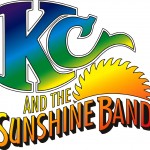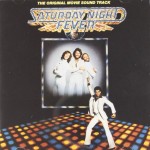Harry Wayne Casey is better known is as “KC” from KC and the Sunshine Band, which he founded in 1973. KC co-wrote and sang the band’s smash hits “That’s the Way (I Like It)”, “Shake Your Booty”, and “Get Down Tonight”, plus “Boogie Shoes” which appeared on the Saturday Night Fever soundtrack. Enjoying immense popularity in the 1970’s and beyond, the band has sold over 100 million records and won three Grammy Awards.
This interview was for a preview article for the KC and the Sunshine Band concert on 8/7/14 at the Chumash Casino. It was done by phone on 7/22/14.
Jeff Moehlis: What can we look forward to at the upcoming show?

Harry “KC” Wayne Casey: It’s almost a two hour show. It’s all the hits, and I try to keep everything familiar in the show instead of doing obscure stuff. There’s some snippets of some songs from the 70’s, and there’s some instrumental stuff that happens because of the changes that are going on, whether it’s me or the dancers or whatever. But pretty much the show is choreographed and it’s a production, and everyone participates in the show. You know, I go off a couple of times to get out of a sweaty shirt into a drier one. There’s musical interludes, and there’s all this stuff that’s in a normal show, really.
JM: Sounds great. Can you tell me about how the musical style that the band is known for originally developed?
KC: My original idea was, I went to this wedding and they had this junkanoo band there, which is a type of music from the Caribbean. It’s drums, horns, cowbells, and lots of percussive stuff, and whistles and stuff. And then I was also managing Timmy Thomas at the time, who had a big hit called “Why Can’t We Live Together”, and we went to Washington D.C. to do a show there and everybody in the audience had whistles. So on the plane I came back, and I thought, “Wow, the whistle’s there in the music of the junkanoo band,” and I wrote this song called “Blow Your Whistle”. I used the junkanoo band and I used some studio musicians in the recording studio. And it started making some noise, it went up to Number 18 or Number 15, depending what R&B chart you look at. It made a lot of noise in the U.S. and then over in Europe.
Then they wanted to do a second song, so then I thought “Blow Your Whistle”, how about “Sound Your Funky Horn”? You know what I mean? I don’t know why I thought of that. So I did a song called “Sound Your Funky Horn”, and it kind of changed from the junkanoo, I used musicians and then I used brass because it was “Sound Your Funky Horn”. [sings] “Everybody sound your funky horn”, and then the horns would go “Ba da da da da”. So that was the whole beginning of it.
Then they wanted to do an album, because now I had two medium R&B hits, not Top Ten but Top Fifteen or whatever. So now we were working on an album and I come up with another song, and Timmy Thomas’ organ, a Lowrey organ with the beat box on it, whatever you want to call it, attached to it, was sitting there in the studio. I sat down and pushed one of the rhythmic things, I don’t know if it was Calypso or Tango or whatever, and I started creating this song. And this song didn’t fit with KC and the Sunshine Band, what I thought I was about, and I put George McCrae’s voice on it. It was a song called “Rock Your Baby”, and it became Number One all over the world in like three or four weeks.
And so now the company in Europe wants to hear not only the new George McCrae album, but does KC have a new album? So we played him some tracks, and one of the tracks was a song called “Queen of Clubs”, and he said, “This is going to be a smash in my country.” I said, “Fine, put it out.” He puts it out, it’s a huge hit over in Europe, so now we have a Number One record with George McCrae and we’re huge in Europe, but really just floating in America. After the success of that record and the follow-up to that record in England, in Europe, they wanted the new album. So we started doing the new album and that’s when “Get Down Tonight” and “That’s the Way (I Like It)” were born.
JM: So when you wrote and recorded these songs, did you have any idea that people would want to listen to them almost forty years later?
KC: No, I mean I don’t think any writer… [laughs] I don’t think any writer thinks about that. But if you look at history, yeah, sure, songs are going to be played until the end of time, pretty much. Not everyone’s, but pretty much. There’s still 50’s stations, there’s still stations that play 50’s music, you know.

JM: My understanding is that you guys didn’t really identify as a disco band, although when you got the song [“Boogie Shoes”] onto the Saturday Night Fever soundtrack you kind of got lumped into that.
KC: You know, when I was creating, I felt music had gotten really dark. I set out to make an album with all up-tempo dance songs, happy music type of thing. I knew that there was this thing happening. Clubs were spinning records, so I knew there was this thing that people were wanting to probably dance more. So that was kind of the birth of what kind of became disco music, I would imagine you would say. It became named “disco” in 1978 or whatever when Saturday Night Fever came out. Then they tried to kill it with the Disco Sucks or whatever demolition thing [Disco Demolition Night]. And then they changed the name to punk music, and then it went from punk back to dance and it’s been dance ever since. And it’s bigger than ever.
JM: It seems that the sounds of disco are making a comeback in recent years.
KC: You think? [laughs]
JM: Do you feel vindicated at all? Because I know you had a hard time with music critics and so on back in the day.

KC: Absolutely, absolutely. I mean, again it never went away. You can’t be more disco than Madonna was in the 80’s.
JM: To you, what was the good, the bad, and the ugly about the “disco era” in the late 70’s?
KC: I don’t know why there’s a good, bad, and ugly. It was a wonderful period of time. To me, it was a celebration of everything that everybody picketed for in the 60’s and everything, for peace, for love, for understanding, for acceptance. It was the culmination of all of those wishes and dreams of all those people that went and fought for us and died in the Vietnam War. It was the ending of the war. You know, it was just a celebration of all of that sort of stuff, in a way. It was kind of like the turning point for all of us as people, I believe.
JM: I know you took a break from music in the 1980’s. Why did you do that, and what got you back into performing?
KC: You know, I didn’t want to have anything to do with it anymore. Then all of the sudden I just realized… In the early 90’s, I did an Arsenio Hall TV show and just realized, wow, this is what I love to do. It kind of reopened my eyes and my head, and I thought, this is where I belong and this is what I should be doing. So I started putting myself back out there again.
JM: What advice would you give to an aspiring musician?
KC: I don’t know, just follow your heart. You’ve got to follow your heart and believe in what you’re doing. Try not to ask too many opinions because those can just confuse your head, or whatever. You can listen to somebody, but really follow your own… If what they’re saying is what you’ve already been thinking, then that’s the right thing. Buy maybe if it’s not, you need to think about it and see, is what they’re saying the truth in what I should change, or what they’re saying doesn’t make sense. You have to apply it to whatever your own situation is. I just believe you follow your heart and your dreams.
It’s a lot of sacrifice, and you have to decide do I want to party or do I want to have a career, you know what I mean? I think anybody that’s successful gives up life for their success. You have to be ready to do that, and sometimes it includes family, friends, partying, and everything. You’ve got to set your goals. Some people are just happy being part of the machine, and just being whatever, and they don’t want to give up things. I think sometimes that’s the difference in someone who’s really successful and sometimes someone who’s not.
Then again, you’re successful in whatever decision you’ve made in life, wherever you are. That’s success. I think you’re successful when you’re doing something you’ve always dreamed of doing. I don’t care what it is, whether it’s a journalist or a singer or not-the-big player on the football team but the people behind the scenes. Everybody’s important in the scheme of things, and I think if you’re happy just doing that, then you’re successful.
JM: What are your plans, musical or otherwise, for the near future?
KC: I just recorded a new album. It’s actually almost two records. It’s twenty-four original songs and seventeen songs from the 60’s.
JM: What sort of songs did you decide to cover?
KC: I picked a Bob Dylan song, I’ve got a song by The Kinks, a Joni Mitchell song “Both Sides Now”. It’s just a mish-mash of some R&B stuff and… They were just songs that I felt were kind of about my life in a way, or what I think about life and love and that whole thing. It was hard to pick these songs and not do a whole Motown album, to be honest with you. There are a few Motown songs on there.
JM: When is that going to be out?
KC: In the next few months. I don’t have an exact date. I did have a date, and I blew that date because the contract wasn’t signed.
JM: But it’s in the can, as they say?
KC: Yeah.
JM: Do you want to set the record straight on anything about yourself or the band?
KC: No, I mean, I don’t know. I mean, critics have constantly tried to tear us down, like you said. I think we mean a lot to pop culture. Even the Rock and Roll Hall of Fame has decided… They wait until Donna Summer dies to put her in there. But if you ever go there, there’s a whole section of music missing from the Rock and Roll Hall of Fame. How can you do that? How can you just ignore a complete era of music? You know, we changed music like Elvis Presley did, like The Beatles did, and we haven’t gotten any of that credit for it, or whatever. You know, maybe in due time, maybe somewhere down the line in history it’ll all come together.
JM: Do you have any comment on Rick Finch’s role in the band. I don’t want to go into where he is now… [Finch is currently in jail for inappropriate sexual conduct with teenage boys; he pleaded not guilty.]
KC: I don’t talk about that. I mean, he was a great engineer and producer and musician.
JM: So you’re happy to leave it at that?
KC: Yes.
JM: I think I am, too. Where are you speaking to me from?
KC: I’m in Miama, Florida.
JM: Do you live there still?
KC: I do.
JM: And pretty soon you’ll be back on tour?
KC: I tour all the time. I’m out every weekend, almost. I don’t do long tours. I go out on weekends and we do sixty, seventy shows a year, something like that.


Discussion
No comments for “Interview: Harry “KC” Wayne Casey”